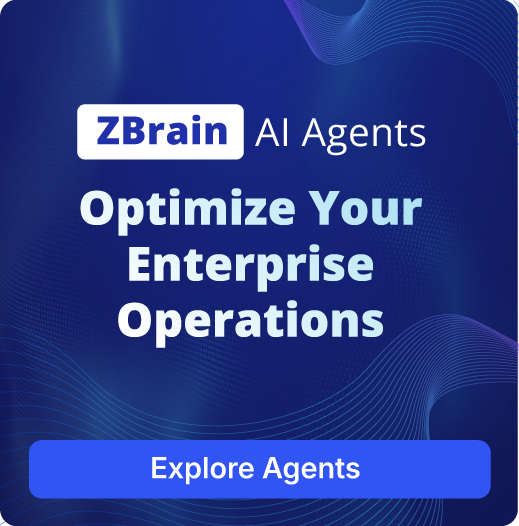
Jira Conversational Insights Agent
Leverages JQL and NLP to provide quick, context-driven insights from Jira tickets, attachments, and procedural documents.

Salesforce Knowledge Creation Agent
Automates knowledge article generation from resolved cases in Salesforce, enhancing efficiency and reducing redundancy.

Jira Conversational Insights Agent
Leverages JQL and NLP to provide quick, context-driven insights from Jira tickets, attachments, and procedural documents.

Salesforce Knowledge Creation Agent
Automates knowledge article generation from resolved cases in Salesforce, enhancing efficiency and reducing redundancy.
Enhance Knowledge Base Management with ZBrain AI Agents
ZBrain AI Agents for Knowledge Base Management enhance the usability and efficiency of information systems by automating key tasks such as dynamic knowledge creation, content updates, content organization, and information retrieval. These AI-driven solutions integrate seamlessly with existing platforms, enabling organizations to keep their knowledge repositories current and easily accessible. Leveraging advanced AI algorithms, ZBrain AI agents help build a well-structured, dynamic knowledge base that evolves with the organization’s needs. They intelligently categorize content, making it easier for users to quickly access relevant information. Their ability to efficiently update and manage large volumes of data ensures that knowledge resources stay current and reliable. This enables teams to shift their focus from manual upkeep to strategic initiatives and informed decision-making.

